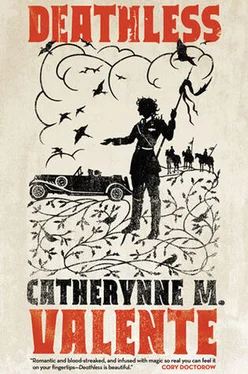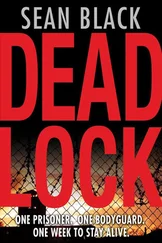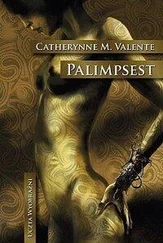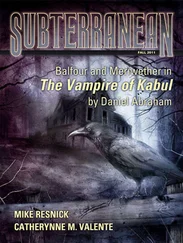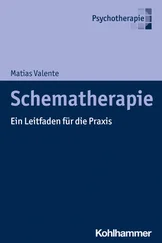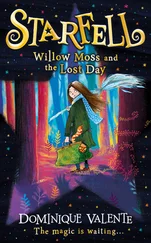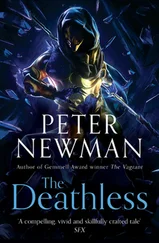“Morevna! Bustle! Faster than you is still too slow.”
Marya took the leshy’s rough hand and he hauled her, headfirst, underground.
* * *
Marya flipped in her descent and landed neatly on her feet in quite another forest, full of stubby scrub trees and tall lilac flowers. Golden-orange mountains rose on all sides, closing them in. Zemlehyed hung from the branches of one of the taller trees, kicking his short legs back and forth in delight. He wiggled the top of his head out of a crack in the branch and fell—thump, bash!—onto the needle-strewn ground.
But the forest imp bounced up, and when he righted himself, he was a handsome man in a dark green soldier’s uniform with red piping, his cap sparkling gold. He had a twisted, thorny black beard and muscled arms like pine trunks. Zemlehyed laid his finger aside his nose.
“You cannot tell,” he said, his voice suddenly very much changed. “They mustn’t know.”
Marya Morevna gaped. She could not make her mouth close. All that time, and her friend was … what? She could not even say. A man. And a beautiful one. “Why not? Zem! Even Lebedeva would have to admit you’re handsome!”
“Forests have secrets,” he said gently. “It’s practically what they’re for. To hide things. To separate one world from another. You might not think it, but I love Lebed, and Nasha, with all my muddy heart. But as long as they think I’m stupid I can keep stealing from their stashes and they’ll never suspect. Lebedeva would never think for a moment that I would want her night cream, or Naganya’s holster-blouse. But I have them, and they are mine, and I will not give them back, no.”
“Why would you want them?”
Zemlehyed shrugged. “It’s in my nature. I hoard. It’s in their nature, too, which is why Lebedeva has more night creams than nights, and Nasha collects tin cans. Zmey Gorinich, he is like this as well. But I think it is also in your nature.”
Marya blinked. “I don’t think so. What have I collected?”
Zemlehyed smiled in a lopsided way, as though he did not quite know how to use his face.
“Us.”
* * *
The leshy led her through a field of spiky yellow blossoms fuzzy with pollen, heavy with buzzing bees. Puffy white cotton plants waved around them like tiny clouds. The sun pressed its hands to their shoulders, hurrying them along. The mountains, streaked with snow, rose strange and thin around them, as though a starving man slept under the earth, his ribs poking through the stone. They followed a deep blue river that ran deliriously through the meadow, fish splashing as though no spearman could dream of happening by. In the distance, at last, just as the sun was getting red and tired, Marya saw a great furry yurt in the dry grass. Thick, curly fleeces covered its roof; long poles stood tight together, curving in a round sweep. A ram pelt hid the door.
Zemlehyed did not knock. He pushed the pelt aside and ducked into the hut, squeezing his enormous frame into the doorway. Marya followed him into the warm yurt-shadows, where a bald man with round glasses sat at his desk, dwarfed by mountains of paperwork.
“Do you have an appointment?” he roared, a flush traveling all the way from his scalp to his brows in a long red wave.
“We seek Zmey Gorinich,” said Marya, her voice firm.
“You are tiny,” the man concluded. “Zmey Gorinich does not exist for the use of the tiny. Only the big does he notice! As big as he is!”
“I am big.” Zemlehyed shrugged.
“Not very, compared to Zmey Gorinich!” bellowed the man, his head going red again.
“We did not come to compare ourselves to Zmey Gorinich,” said Marya sweetly, measuring the mood of the man in glasses. He grabbed at a sheaf of paper at the bottom of the pile and yanked expertly, pulling it free without disturbing the rest. He set to scribbling in the file. “How could we compete with three heads, a tail like a mountain range, and the breath to burn empires down?”
The man in glasses looked up exasperatedly. “Look, you criminals, I don’t have three heads. I never had three heads! This is what comes of letting writers have free rein, and not bridling them to the righteous labor of the Party the moment they learn to slap an accusative case around. I am Comrade Gorinich, and I have one head.”
“I am not a criminal,” said Marya Morevna. Zemlehyed did not protest for his own honest status, being a goblin and in spirit a criminal, even if no warrants bore his name.
“Of course you are,” snapped Comrade Gorinich. “Everyone is a criminal! We are beset on all sides by antirevolutionary forces. Naturally, then, humans fall into three categories: the criminal, the not-yet-criminal, and the not-yet-caught.” Comrade Gorinich gestured at them with an enormous fountain pen. “Even the man who is all his life vigilant, who keeps his mind and body so clean that he never has a single antirevolutionary thought—even that man is a criminal! He should have been effortlessly pure! If he had to fight so hard to hew to Comrade Stalin’s vision, then obviously, he was a criminal all along!”
“I thought you were a dragon,” sighed Marya, sitting down in a small chair. She still longed for the best heights of magic, to see dragons and mermaids, to see the naked world. Not this, which made her think only of home, and how her own warrant might at least read runaway . Zemlehyed stood calmly behind her, at attention.
Comrade Gorinich pounded his files with both fists. “I am a dragon! Look around! What do you see, eh? This is my bed of bones! Look how I crunch them!”
Marya quirked her eyebrow, which seemed to enrage him even further. Soon she thought his head would fly right off. She shrugged. “I don’t see any bones.”
“Your criminal nature blinds you! Look!” He snatched up a file in his hand. “Comrade Yevgeny Leonidovich Kryukov! Convicted of anti-Stalinist organization on Tuesday the twenty-fourth! I had him shot on my lunch break! Bones! Comrade Nadezhda Alexandrovna Roginskaya! Convicted of concealing her fugitive, criminal cousins from me! Arrested on Thursday, shot on Friday before dinner! Bones!” He held an enormous file up above his head. “The village of Bandura, in Ukraine! Refused to collectivize! Too bad—either way they starve to death! Bones!” The bald man leaned over his desk, caressing the papers. “ Three hundred and sixty-seven separate anti-Bolshevik spies convicted of the murder of Sergei Mironovich Kirov! Or will be, as soon as we can manage to have Kirov shot in Leningrad! Bones! Bones! Bones!” Gorinich clutched the papers in his fists, quite beside himself. “I sleep with my orders of execution stuffed into my mattress. It is good for my back!”
Marya watched him, horror searing through her, sour and cold. “Why do you do this, Comrade Gorinich?” she said softly.
“It is the least I can do! Here, in the hinterlands, the Party does not have it so easy. People are so attached to their yaks and their children. But I, I understand the east. I have been here longer than the dirt! My mother was a great dragon. She lived in Lake Baikal, snorting storms, spitting floods, diving down to the bottom of the lake to bite the floorboards of the world. My father—you will not believe it, I know!—my father was Genghis Khan, and so great a heart had he that alone of all creatures in heaven and earth he was strong enough to force himself on my gargantuan mother, laughing all the while. My egg rode with the Golden Horde. I nursed at the villages they burned, the bodies full of arrows! I am full of easterners! So I know them, toe and pate. And they know me. They know if they go against the Party, they go against Comrade Gorinich, and Gorinich has always been their comrade, their bedmate, their dinner guest, their funeral master.” He adjusted his glasses and mopped his brow with a red kerchief. “I am a conduit. Moscow, she sends me meat and bones, and I send her rich, soft cotton, rich, soft petroleum. Tribute. It’s an old, honorable system.”
Читать дальше
